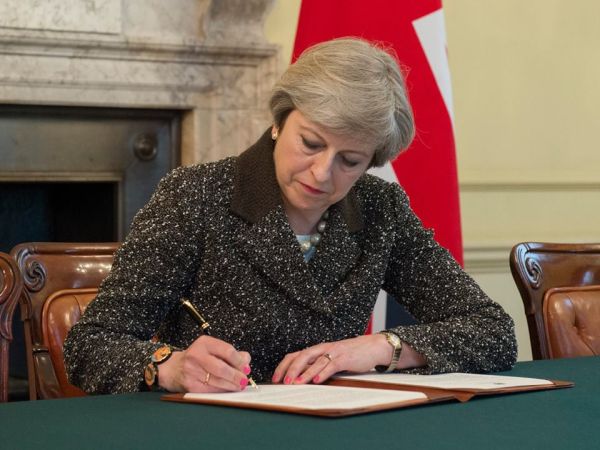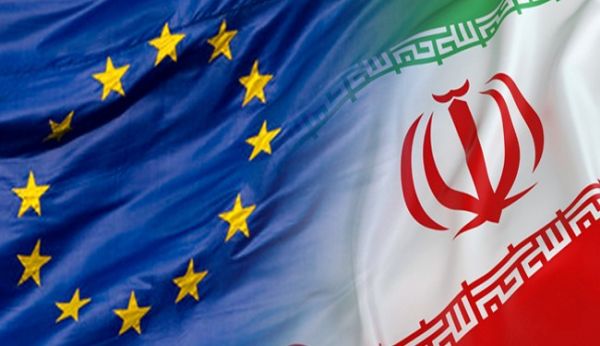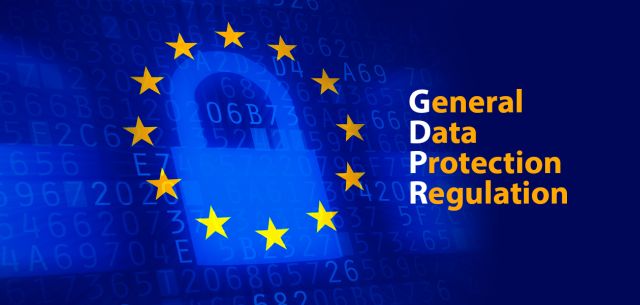
by Editor | May 25, 2021 | Muslim World
 Rabat : Morocco and the European Union signed a new fishing agreement on Tuesday, after concluding three months of negotiations to replace a deal that expired last week.
Rabat : Morocco and the European Union signed a new fishing agreement on Tuesday, after concluding three months of negotiations to replace a deal that expired last week.
The new agreement allows EU boats to access Morocco’s fishing waters for 52 million euros per year ($60 million), a 30 percent increase on the old deal, a document circulated by Moroccan Ministry of Agriculture and Fishing said.
“It is a win-win agreement,” said Claudia Wiedey, the head of the EU’s delegation in Morocco.
The agreement, which was initially signed in 2014, expired on July 14, when Rabat and Brussels failed to reach an agreement on the deal’s financial implications for both parties in time.
In an interview after signing of the deal, which will come into force by the end of the year, Morocco’s Agriculture and Fisheries Minister Aziz Akhannouch expressed his satisfaction, saying that the agreement marks a new page in EU-Morocco diplomatic ties. He pointed out that the most important aspect of the deal is to guarantee fishing sustainability and protect Moroccan resources.
The minister praised the EU’s compromise regarding the inclusion of the territorial waters of Western Sahara, saying that Morocco will play its part by ensuring that the large part of the deal’s benefits goes to the local population.
—AB/UNA-OIC

by Editor | May 25, 2021 | World

British Prime Minister Theresa May
London : The British government on Thursday published the long-awaited white paper on Brexit seeking to create a free trade area with the EU. Prime Minister Theresa May said it delivers on the Brexit vote.
The 98-page document, titled “The Future Relationship between the UK and the EU”, was published amid chaotic scenes in the House of Commons. It spelled out that workers from the other 27 EU member states will be able to travel to Britain visa-free to take up temporary employment, the Guardian reported.
It also stated that businesses that provide services will be able to move their talented people to and from Europe and Britain. Media reports in London said the white paper had been amended to soften the restrictions on Europeans coming to Britain after Brexit.
Dominic Raab, newly-appointed Brexit Secretary after the shock resignation of David Davis, gave details of the proposals to MPs in the Commons. The release of the document sparked chaotic scenes when it became apparent that copies of the paper were not immediately available to MPs.
He described the proposals as a “principled and practical Brexit”, describing the white paper as “the most significant Brexit publication” since the referendum in 2016.
Asked if there was a possibility of no-deal being struck between the EU and Britain, Raab said every eventuality was being planned for, but his aim was to see a future trade deal with Brussels.
May said the document “delivers on the Brexit people voted for”. But, pro-Brexit politicians vowed to table amendments saying May’s plan did not amount to Britain fully leaving the EU. It will see Britain leaving the European single market and the customs union.
The Department for Exiting the EU said the document proposed “a free trade area for goods that ensured continued frictionless access at the border, protected jobs and livelihoods and ensured Britain and EU meet their shared commitments to Northern Ireland and Ireland”.
Raab said the white paper outlined a vision that respects the result of the referendum and delivers a principled and practical Brexit. “It would maintain frictionless trade in goods between the UK and the EU through a new free trade area, responding to the needs of business,” he said.
Tory Brexiteer Jacob Rees-Mogg said it was a “bad deal for Britain”.
EU’s chief negotiator Michel Barnier said he would analyse them (proposals) with the European Parliament and member states and was “looking forward” to negotiations with the UK next week.
—IANS

by Editor | May 25, 2021 | Muslim World
 Tehran : Iran said on Saturday that it has not received the package of proposals from the European Union aiming to save Iran’s interests in the 2015 international nuclear deal.
Tehran : Iran said on Saturday that it has not received the package of proposals from the European Union aiming to save Iran’s interests in the 2015 international nuclear deal.
The European states are still holding discussions to present their proposals, said Bahram Qasemi, spokesman of the Iranian Foreign Ministry.
Last week, Abbas Araqchi, Iran’s Deputy Foreign Minister, said three European countries and the EU “have pledged to propose a package of practical solutions to secure Iran’s interests in the deal”, Xinhua reported.
Earlier this month, Iranian President Hassan Rouhani urged the European signatories to the 2015 nuclear deal to take “practical and tangible measures” to protect Iranian interests after the US pullout.
Iran signed the landmark nuclear deal with the US, Britain, France, Russia and China plus Germany in 2015 to halt its nuclear weapons programme in exchange for sanctions relief.
However, US President Donald Trump decided on May 8 to quit the Iranian nuclear deal and vowed to re-impose sanctions, including oil embargo, on Tehran.
—IANS

by Editor | May 25, 2021 | Business, Emerging Businesses, Muslim World
 Rabat : Morocco and the EU have resumed their negotiations on reaching a new fisheries agreement, the Moroccan Foreign Ministry said in a statement.
Rabat : Morocco and the EU have resumed their negotiations on reaching a new fisheries agreement, the Moroccan Foreign Ministry said in a statement.
This is the second round of negotiations after the first one on April 20. The meeting made progress towards the finalization of negotiations to reach a balanced and mutually beneficial agreement likely to bring qualitative added value to the partnership between Morocco and the EU, the statement said on Friday.
The meeting was attended by several Moroccan ministers and a high level EU delegation, chaired by Joao Aguiar Matchado, Director General for Maritime Affairs and Fisheries at the European Commission.
The current fisheries agreement between the two sides will expire in July. The first fisheries agreement concluded between the EU and Morocco dates back to 1995.
—IANS

by Editor | May 25, 2021 | Business, Markets, Medium Enterprise, Networking, Technology
 By Nishant Arora,
By Nishant Arora,
New Delhi : As the European Union (EU) gets ready to implement the much-awaited General Data Protection Regulation (GDPR) to harmonise data privacy laws for its citizens from May 25, most of the Indian organisations are still grappling to comply with the stringent regulation.
Containing 99 articles and 173 recitals, GDPR has key requirements that directly impact the way organisations implement IT security, thus addressing the key security tenets of confidentiality, integrity and availability of data.
According to the latest forensic data analytics survey by Ernst & Young (EY), only 13 per cent of the Indian firms have a plan to comply with GDPR by May 25.
As India is not present in the list of countries approved for data portability and transfer, GDPR poses an extra challenge for domestic firms that operate in the EU.
“It is imperative for Indian firms to plan and continue their journey towards compliance even after May 25, to ensure continuity of business within the EU and avoid hefty penalties because of non-compliance,” Jaspreet Singh, Partner-Cyber Security, EY, told IANS.
For Ramesh Vantipalli, Director Systems Engineering, End User Computing, VMware India, the challenge for the Indian organisations facing the GDPR is ubiquitous data which will only increase exponentially in future.
“For Indian companies with operations in the EU, data security measures will now have to work alongside legal and compliance teams to ensure maximum adherence to GDPR,” Vantipalli told IANS.
“Fortunately, the transition will take place over some time and not overnight, giving Indian companies enough time to get their GDPR strategy in place,” he added.
With data privacy concerns on the rise and stringent regulatory requirements like GDPR coming into force, organisations have no choice but to redefine the way they approach data management.
“Organisations should realise that GDPR is about more than just data; it’s necessitating a new playbook for businesses to engage with people,” stressed Akshay Aggarwal, Director, Solution Specialist, Oracle India.
Non-compliance with GDPR can result in heavy fines and increased regulatory actions.
“Organisations that collect personal data must be able to prove that they consistently and reliably comply with GDPR privacy and security principles. We’re actively working with several Indian businesses in this regard,” Aggarwal told IANS.
A new study from IBM reveals that nearly 60 per cent of organisations surveyed are embracing the GDPR globally as an opportunity to improve privacy, security, data management or as catalyst for new business models, rather than simply a compliance issue or impediment.
GDPR is a fairly complex piece of legislation with far reaching impact not just within the EU but across the world.
“Indian companies operating in the EU will have to change the way they capture, process and use data of EU nationals. It is a complicated process involving in-depth understanding of privacy laws and policies,” said Prajit Nair, Director Sales-End User Computing, VMware India.
Technology alone cannot help organisations understand and transition to GDPR, but it will be a crucial enabler.
“Indian companies must put in place a comprehensive strategy involving legal, compliance and IT departments to ensure complete adherence to the GDPR laws, as well as a proactive plan to address breaches and leaks,” Nair told IANS.
In fact, the post-GDPR world will see a much closer integration of the law and technology as organisations work out their data protection strategies.
According to George Chang, Vice President-APAC of cyber-security firm Forcepoint, India’s Data Protection Law, when comes into effect, will sure have a major impact on business operations.
“Organisations in India need to place compliance and data security as a priority considering the cost for violating these privacy laws is about to get very expensive. GDPR can cost up to 20 million Euros or 4 per cent of annual turnover, whichever is higher, for intentional or negligent violations,” Chang informed.
“With those kinds of stakes, investing in compliance now is the only right move for a sustainable business model,” he added.
According to Richard Hogg, Global GDPR and Governance Offerings Evangelist, IBM, GDPR applies to all the personal data of any employee or customer who are in Europe.
“Whether they are citizens or temporary residences and live there, are just passing through an EU airport for 30 minutes. During this time, potentially GDPR applies to their personal data.
“GDPR really does have extra-territorial scope. Additionally, it can apply to anyone’s personal data, if you are actively marketing or profiling them From Europe, wherever they are in the world,” Hogg told IANS.
As the clock ticks down to the deadline to comply with the new GDPR regulations, the Indian firms need to enact strict data protection regulations.
“With strong data protection strategies in place, customers will place greater confidence in businesses, and businesses will minimise the financial fall-out of a breach,” Chang told IANS.
(Nishant Arora can be contacted at nishant.a@ians.in)
—IANS

 Rabat : Morocco and the European Union signed a new fishing agreement on Tuesday, after concluding three months of negotiations to replace a deal that expired last week.
Rabat : Morocco and the European Union signed a new fishing agreement on Tuesday, after concluding three months of negotiations to replace a deal that expired last week.



